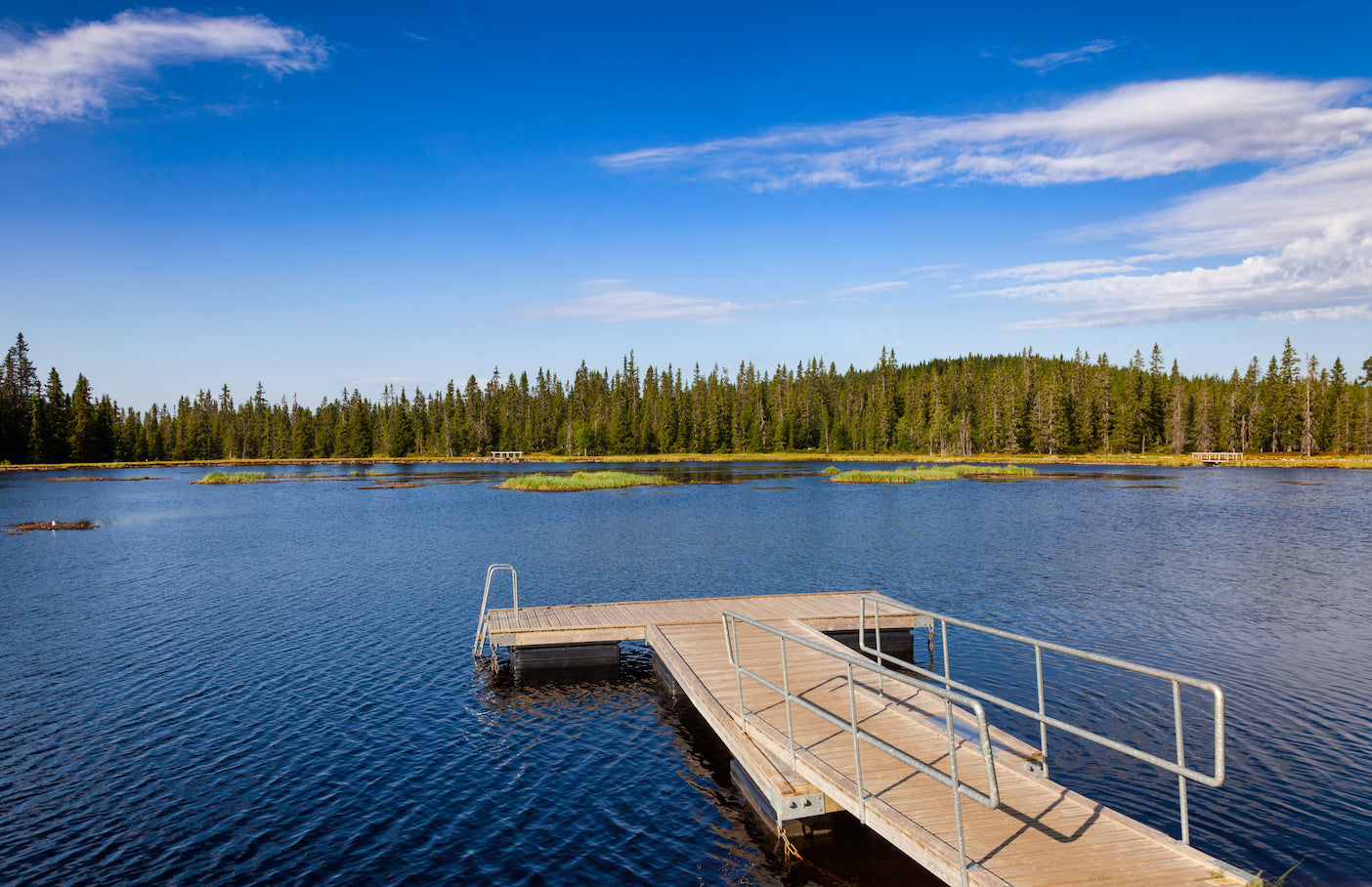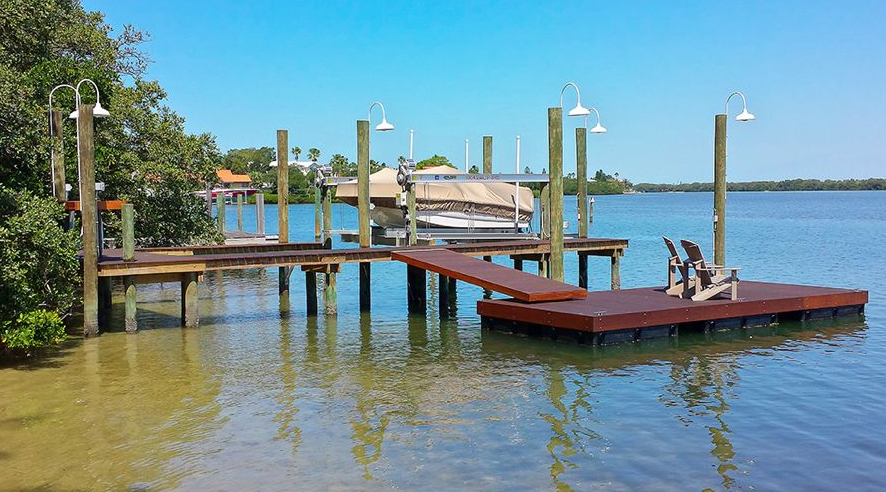Floating Docks: The Suitable Selection for Versatile Water Access
Floating docks present an engaging service for a variety of water accessibility needs, supplying convenience that goes beyond standard mooring alternatives. The modular nature of floating docks helps with customization, providing to particular needs.
Benefits of Floating Docks
Floating docks deal many advantages that enhance water access for different applications. Their ability to fluctuate with transforming water levels makes them especially advantageous in settings with varying tides or seasonal variations. This adaptability ensures that vessels can easily moor without worry for the water's depth, offering a reputable system for recreational, industrial, and commercial usages.
In addition, floating docks are commonly created from long lasting products that withstand rust, making them ideal for long-term use in aquatic environments. Their installment is normally less invasive than traditional fixed docks, lowering the ecological impact and facilitating quicker release (floating dock company). This versatility permits much easier moving or reconfiguration according to user demands or ecological changes
Safety is another crucial advantage; floating docks can give stable access for individuals getting off or boarding from boats and reduce the threat of crashes connected with unstable surfaces. In addition, they can be developed to fit a range of devices, such as cleats and fenders, improving capability. Generally, floating docks represent a reliable option for improving water access across diverse sectors while advertising safety and security and ecological sustainability.

Kinds Of Floating Docks
Various sorts of floating docks satisfy various requirements and settings, each made with details attributes to maximize functionality. The most typical kinds include modular docks, which include interlocking sections that enable for simple customization and growth. These docks are ideal for entertainment use, as they can be customized to fit different watercraft dimensions and water conditions.
Another popular option is the stationary floating dock, which stays anchored in place but floats with altering water levels. floating dock company. This type is especially matched for locations with minimal tidal fluctuations, supplying secure gain access to for angling or swimming. Additionally, there are drive-on docks, which feature a sloped design that permits boats to conveniently drive on and off, making them ideal for personal watercraft and smaller vessels
For business applications, sturdy floating docks are readily available, built from reinforced products to endure substantial lots and extreme aquatic environments. Finally, environmentally friendly floating docks make use of lasting products and designs to lessen environmental impact, commonly integrating features like vegetation to support neighborhood wild animals. Recognizing the different sorts of floating docks guarantees that customers can choose the most appropriate option for their specific needs.
Setup Process Introduction
A successful installation of floating docks needs careful planning and focus to information to make certain optimal performance and safety and security. The first step entails assessing the site conditions, consisting of water deepness, existing, and potential challenges. This assessment informs the selection of the suitable dock products and style customized to the certain atmosphere.
Next, obtaining needed permits is important, as many jurisdictions have policies regarding building and construction on water bodies. The installation can continue once consents are safeguarded. Begin by preparing the structure, which may involve anchoring systems or pilings tailored to the dock kind and local problems.
Following the structure setup, construct the dock sections according to producer specifications. Make sure that all components are safely fastened and aligned to hold up against environmental tensions. Position the why not try these out dock in the marked location, ensuring it is degree and steady.

Maintenance Tips and Best Practices
After the installment procedure is full, ongoing upkeep plays an important role in ensuring the durability and performance of floating docks. Regular evaluations ought to be conducted to identify any type of indications of damage, damages, or wear - floating docks. Look for any type of loose fittings, fractures, or separation in the dock sections, as these can compromise architectural integrity
Cleansing the dock is vital to get rid of debris, algae, and various other accumulation that can impact its look and safety and security. Use a mild pressure clean occasionally to keep tidiness without triggering damage to the surface area. Furthermore, using see here now a safety sealer every couple of years can help enhance durability and stand up to ecological wear.
Pay interest to the mooring lines and anchors, guaranteeing they are free and safe and secure from deterioration. Replace any type of degraded elements without delay to stay clear of hazards. Seasonal adjustments may additionally be necessary; during severe weather, strengthening the dock or repositioning can protect against damages.
Applications for Floating Docks
Floating docks serve a wide range of applications, dealing with both business and leisure demands. In entertainment settings, they supply smooth accessibility to rivers for tasks such as boating, angling, and swimming. Their adjustable nature enables installation in varying water levels, making certain secure and steady accessibility regardless of tidal variations.
Commercially, floating docks are essential for marinas and waterside businesses. They assist in the docking of vessels, allowing reliable unloading and packing of products. Their modular design enables very easy development or reconfiguration to fit changing organization needs, making them optimal for boat services, excursion procedures, or fishing charters.
Furthermore, floating docks are used in ecological applications such as water study and environment restoration. They can offer as platforms for clinical research studies, checking water high quality, or carrying out wildlife studies without disturbing delicate ecosystems.
In industrial contexts, floating docks are utilized in building jobs, supplying accessibility to hard-to-reach areas for devices and employees. Their versatility, resilience, and minimal effect on the atmosphere make them an optimum selection for a wide variety of applications, improving both performance and access in numerous water-based settings.
Verdict
In final thought, floating docks represent an optimum service for internet varied water gain access to requires, owing to their versatility, resilience, and modular layout. Floating docks serve as a useful property for entertainment, commercial, and ecological projects, guaranteeing reliable accessibility to rivers and promoting lasting techniques in aquatic environments.
Floating docks existing an engaging option for a range of water accessibility requires, providing convenience that transcends standard mooring options.Floating docks deal countless advantages that boost water access for different applications. In general, floating docks represent an efficient remedy for boosting water gain access to throughout diverse industries while promoting security and ecological sustainability.
Another popular choice is the stationary floating dock, which stays secured in place yet drifts with transforming water levels.In verdict, floating docks stand for an ideal service for diverse water access needs, owing to their versatility, sturdiness, and modular design.